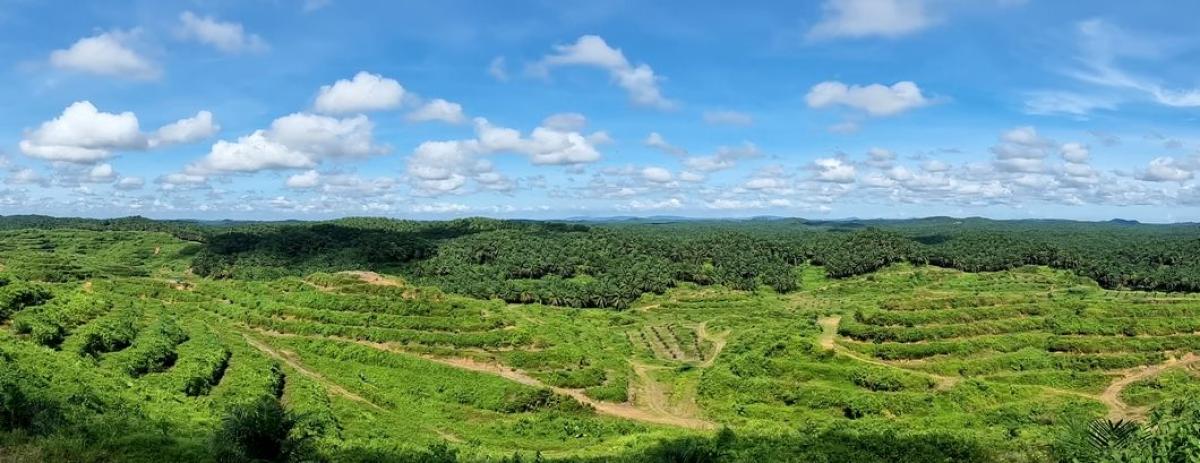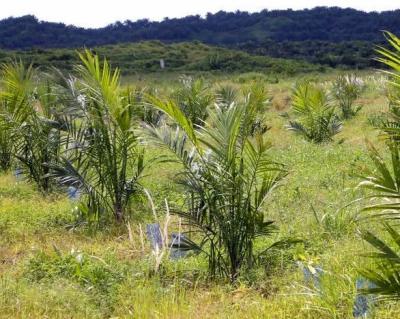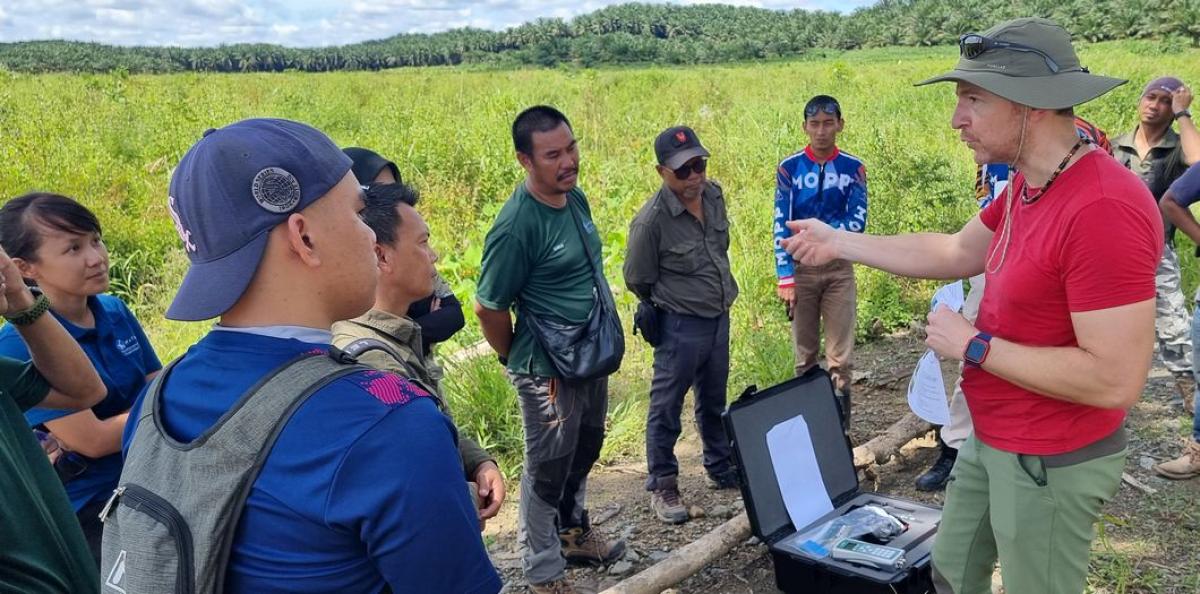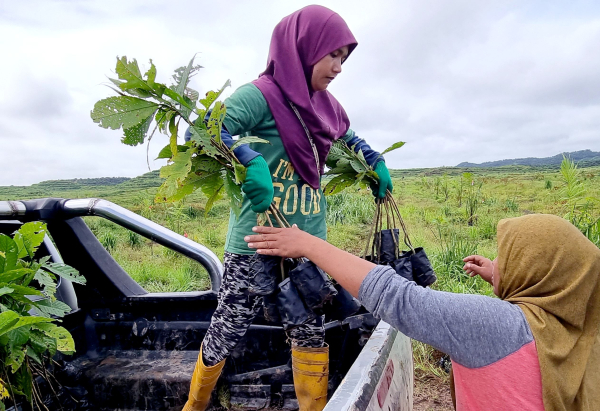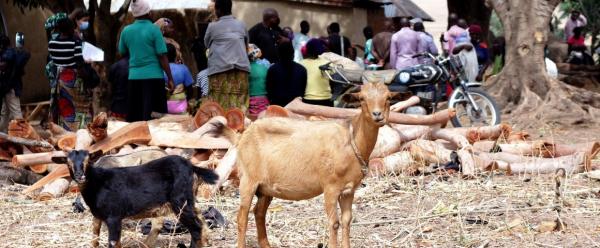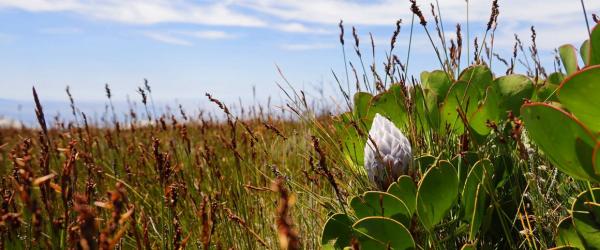Results & impact 28 October 2025
- Home
- CIRAD news
- News
- Borneo, oil palm and agroforestry
The oil palm sector in Borneo is banking on agroforestry
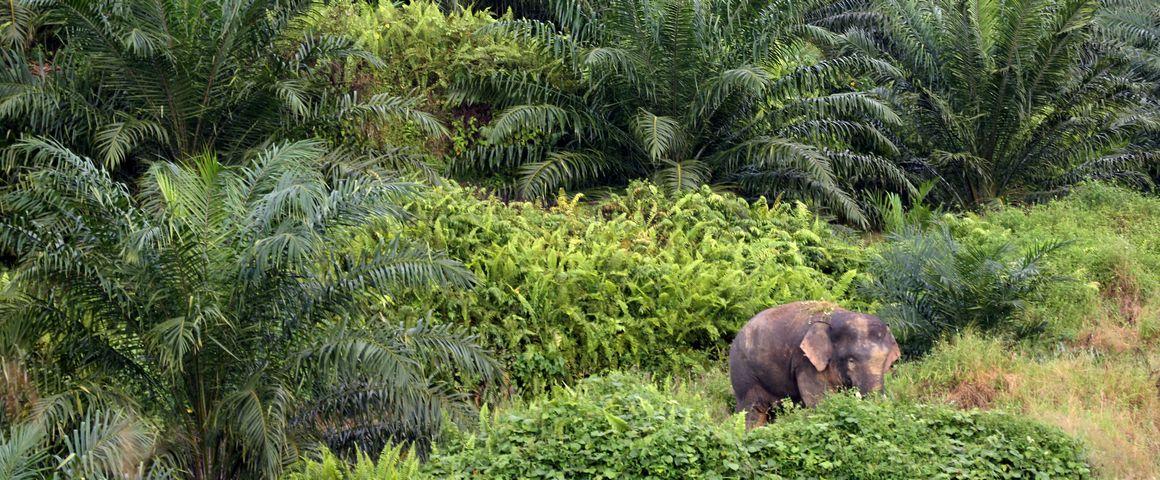
Successful cohabitation between a protected species (pygmy elephants) and oil palms in Sabah, Malaysia © A. Rival, CIRAD
"We can't save the orangutan by fighting industry, but we can give them a chance of survival in the current era", says Marc Ancrenaz, Scientific Director of the NGO Hutan. The organization is a partner in the TRAILS (climaTe Resilient lAndscapes for wIldLife conservation) project, coordinated by CIRAD, which aims to make the oil palm value chain in the Kinabatangan River Basin more sustainable.
In Malaysian Borneo, almost 90% of the landscape is now made up of oil palm plantations. The crop provides several million people in Southeast Asia with a living, but at a well-documented cost for the environment: disappearing forests, vanishing wildlife, watercourse pollution, susceptibility to extreme climate events, etc.
Agroforestry offers promising ways of making the chain more sustainable, while fostering local socioeconomic development. This is a key issue for the TRAILS project, which associates CIRAD, Hutan, the Melangking Oil Palm Plantation (MOPP) firm and Putra Malaysia University. The project has financial support from the French Ministry for Europe and Foreign Affairs, the Alliance pour la protection des forêts and the Ferrero group.
Combining returning wildlife and productive oil palm plantations
"Our approach, based on introducing trees into oil palm plantations and restoring forest corridors, is holistic", Hutan's Scientific Director Marc Ancrenaz explains. "By demonstrating that it serves to combine species protection, resilience to climate change and increased productivity, we will be in a position to convince large numbers of producers." To this end, over two years, the project partners have wildlife recolonization dynamics and the selected plots, identified and planted 15 pioneer endemic species and implemented research protocols under field conditions. Scientific data are being collected to assess wildlife recolonization dynamics and the performance of oil palms planted in such new agroforestry systems over time. This will serve to quantify the environmental services rendered and the socioeconomic impacts of the agroecological transition under way.
Scientific support for local initiatives
This iterative work was primarily done by local partners, with support from CIRAD. "We are working side by side to learn more about these new agroforestry systems, by making use of every partner's expertise and including local communities", Marcel Djama, an anthropologist with CIRAD who is coordinating the project, adds. To quote one example, "To identify forest species suitable for use as service trees, we based ourselves on almost two decades of reforestation operations by the NGO Hutan. The people living around the plantation have taken part in restoring degraded ecosystems both within and outside the plantation, such as managing nurseries and replanting trees."
The territorial development ethos that is central to the TRAILS project is also demonstrated by its work to train and raise awareness among local beneficiaries and junior scientists of the issues surrounding ecological transition. Its action research activities are backed by technical support (camera traps to monitor wildlife and installing weather stations in the plantation, soil and water analyses, and geographic information systems), and general training and even digital marketing training to develop local community ecotourism activities in line with the project.
A pilot project to set the example
This small-scale project should have a snowball effect. In any event, this is what the partners in TRAILS hope. They are banking on the "rapid adoption of the new management techniques", according to CIRAD's Alain Rival, who is coordinating the project's agricultural research component. "The MOPP firm is an ideal size to initiate change and inspire other players in the sector. We are currently only talking about 24 hectares of the 8000 that make up the plantation, but these trials could well prove in future that provided we make a few changes, we can make plantations profitable, more virtuous and capable of mitigating the effects of acute climate crises like El Niño."
While for the time being, the project is concentrating on introducing, sharing and stepping up the chosen scientific protocols, in the coming years, it will reap the fruits of this novel alliance between players whose interests are often seen as irreconcilable. All the more so since the results, co-produced with the Malaysian authorities, will serve to support public policy.

























